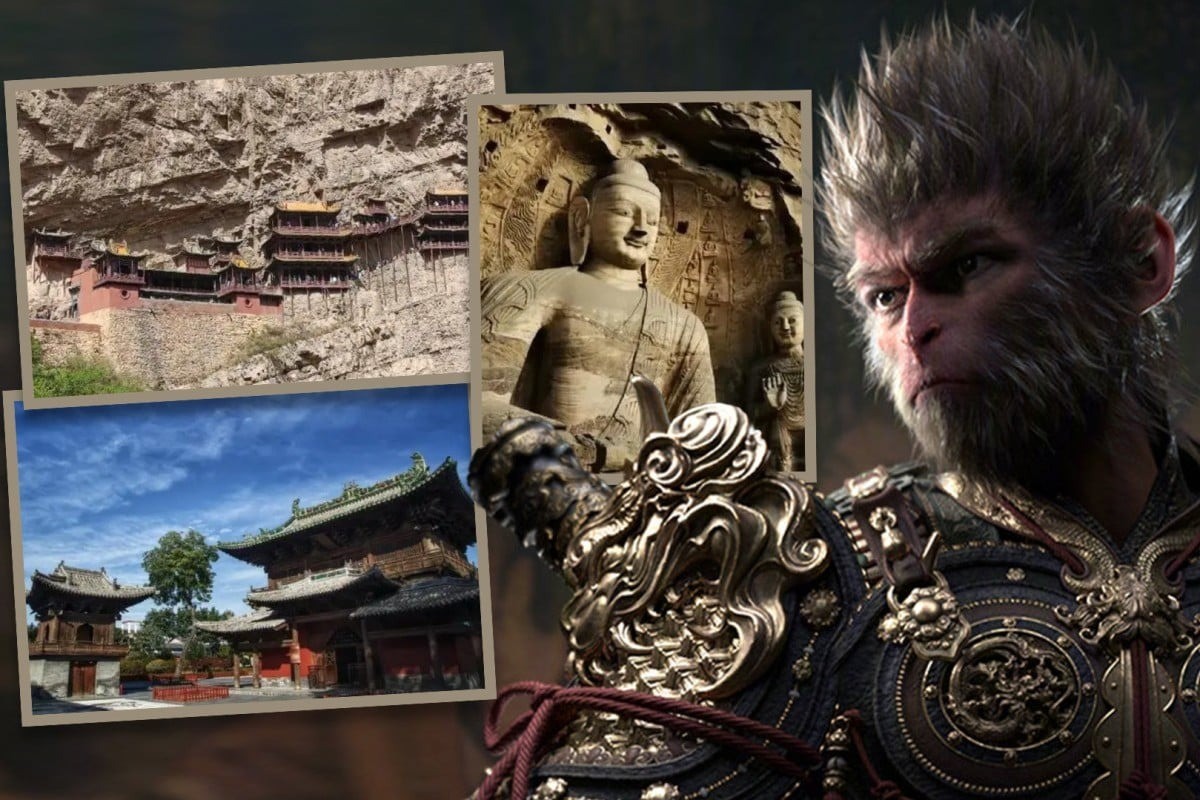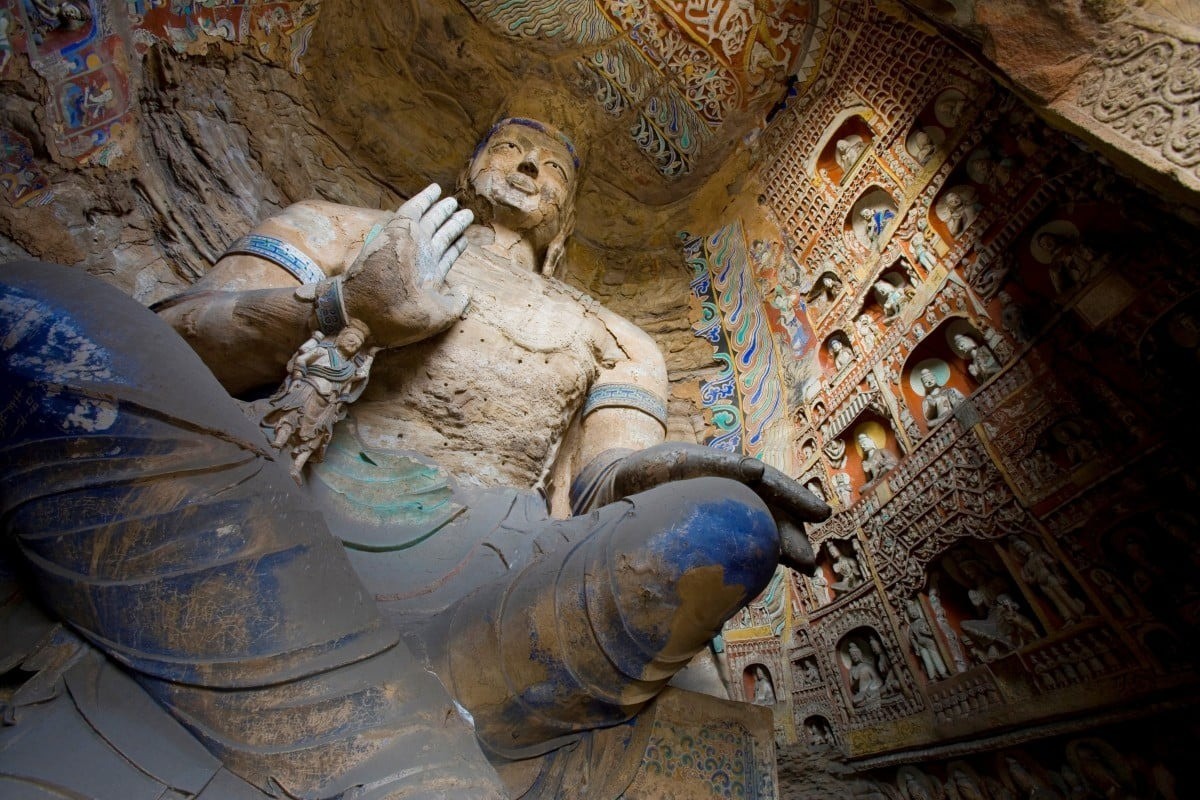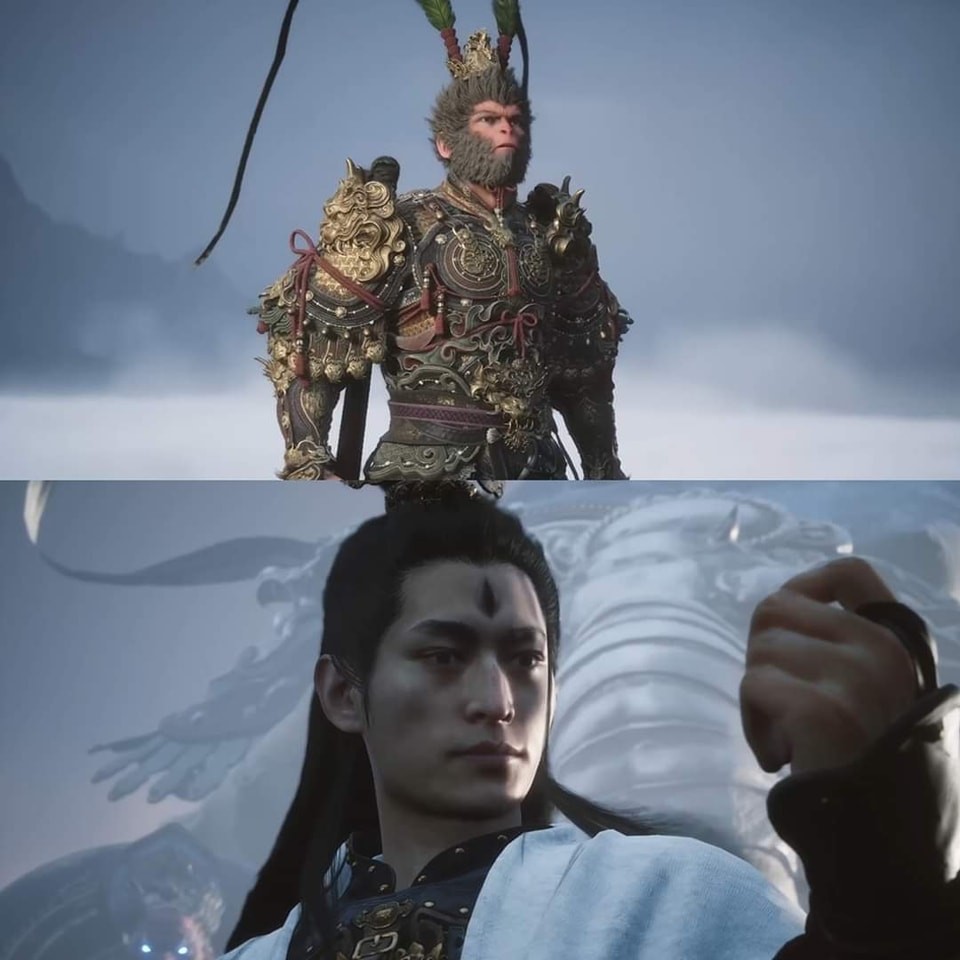When you name the world's biggest video game companies, you might think of Nintendo – the famous creator of Mario, Pokemon and The Legend Of Zelda, or PlayStation – the brand associated with blockbusters such as Final Fantasy and Uncharted. However, Game Science, backed by Chinese company Tencent, showed its face that stunned the world when it launched a role-playing game Black Myth: Wukong.

The launch of the online game Black Myth: Wukong has created an unprecedented tourism boom in northern China. Photo: SCMP.
Launched on August 20 after four years of gestation, Black Myth: Wukong reached a concurrent player count of over 2.2 million players, 10 million sales in 3 days. This is China's first AAA game (industry term for “blockbuster” releases). Notably, developer Game Science has no experience in creating blockbusters and focuses mainly on mobile games.
Respecting culture in enhancing player experience
Chinese media review Black Myth: Wukong is a passionate project with the aim of bringing Chinese classics and cultural storytelling to global gamers.
Game inspired by the novel Journey to the West 16th century (Ming Dynasty) by Wu Cheng'en. The player controls a humanoid monkey, collects 6 spirit stones to revive the Great Sage Equaling Heaven.
Instead of the castles and cathedrals commonly seen in Western video games, Wukong incorporates temples and pagodas in China, all based on centuries-old heritage sites, especially in Shanxi, which is famous for its ancient wooden architecture.
Tourists flock to see the real-life scenes that appear in the game. |
Many scenes take place in picturesque, realistic settings, with misty mountains, lush forests, Buddhist sculptures, clear waterways, and ancient pine trees. These landscapes, which draw on the aesthetics of Chinese painting and architecture, create an atmosphere that helps players immerse themselves.
Experts say poetry elevates the player experience from casual video game combat to cultural appreciation.
Game Science has done a thorough research on the storyline and legacy contained in Black Myth: Wukong They visited locations in Shanxi Province that appear in the game to enhance authenticity.
Brand consultant Jolin Guan says the game's design and production team read Journey to the West more than a hundred times, observing in detail from the monsters to every god in the story. “They visited hundreds of mountains, rivers, temples, turned over thousands of texts about dynasties, drew countless manuscripts”.
Black Myth: Wukong creates tourism fever
Taking advantage of this, the Son Tay culture and tourism agency has released advertisements in conjunction with Black Myth: Wukong inspire the game.
According to SCMP Shanxi province (China) attracts many tourists thanks to online games because the game has scenes from this area.
Of the 36 main filming locations, 27 are located in Shanxi Province, northern China, about 500km from Beijing, such as Xiaoxi Tian, Jade Emperor Temple, Iron Buddha Temple… Besides, there are many famous locations in Sichuan, Lishui, Hangzhou, Chongqing…
Over the past week, Son Tay has seen a tourism boom as many visitors have sought out locations featured in the game.
One of those sites is a Buddhist temple that dates back to the Ming Dynasty (1368-1644). Ticket sales for the site tripled.

Yungang Grottoes appear in the Chinese blockbuster video game Black Myth: Wukong. Photo: Shutterstock Images.
As an area rich in resources, ancient caves and classical architecture, experts say that Shanxi has previously failed to become a top tourist destination mainly due to a lack of transportation between major attractions and the local government's lack of active promotion.
Recently, the image of this place has changed significantly 20 videos on Bilibili about recording scenic spots, including a video called Traveling to Son Tay with Ngo Khong.
Shanxi is not the only place in China that is using the game's attention to boost tourism.
Lianyungang, a city in eastern Jiangsu province that is theorized to be the hometown of Sun Wukong, has announced that players who complete all the quests will be eligible for a free visit to Huaguoshan, a popular tourist destination in the city.
Cultural exports
Black Myth: Wukong has become so popular that a question about the game was raised at a press conference by China's Ministry of Foreign Affairs on August 21. Ministry spokeswoman Mao Ning said she knew little about the video game, given the game's name and the fact that it originated in Journey to the West she believes that Black Myth: Wukong Shows the charm of traditional Chinese culture.
Many comments on Sina Weibo called this “an excellent event for China's cultural export activities”.

The game series is considered to effectively spread Eastern culture to Western countries. Many people watch and re-read information about Journey to the West to understand the plot.
Feng Ji, founder and director of Shenzhen-based Game Science, the developer Black Myth: Wukong said his team did not set out to represent Chinese culture when they started the project in 2018.
“For us, it is natural that traditional Chinese literature, which is based on Eastern philosophy and values that appeal to the world, has more room to explore. We are naturally expressing Chinese culture,” he said.
According to him, choosing Journey to the West The basis of the game is instinctive decision making.
“When we, Chinese people, see the image, or hear the name Sun Wukong, we have a special feeling. With all our heart, we make games that touch the soul,” he added.
Wukong's popularity with both domestic and international audiences is another reason why Sun Wukong was chosen as the game's hero.
On YouTube, videos about Sun Wukong with English subtitles or dubbing attracted high engagement before the game was released,
The story of Wukong has also attracted Western scholars such as Jim R. McClanahan, who studied anthropology at the University of Miami. Dota, the online battle arena game, has included Sun Wukong's Ruyi Jingu in the list of divine weapons.






